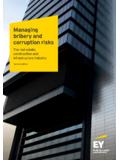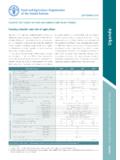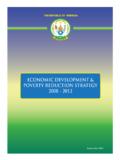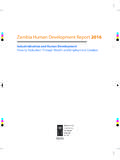Transcription of The Challenge of Domestic Iron and Steel …
1 ISSN: 2276-7827 Impact Factor 2012 (UJRI): ICV 2012 : The Challenge of Domestic iron and Steel production in nigeria By Elijah I. Ohimain Greener Journal of Business and Management Studies ISSN: 2276-7827 Vol. 3 (5), pp. 231-240, July 2013. 231 Research Article The Challenge of Domestic iron and Steel production in nigeria Elijah I. Ohimain Biomining and Geomicrobiology Research Unit, Biological Sciences Department, Faculty of Science, Niger Delta University, Wilberforce Island, Bayelsa State, nigeria . Email: Phone/fax: 234-803-7306520 ABSTRACT A vibrant iron and Steel sector is necessary for the infrastructural and technological development of any nation.
2 nigeria is blessed with all the raw materials required for Steel development including iron ore, coal, natural gas and limestone. At the third national development plan (1975 1980) specifically between 1976 and 1978, nigeria commenced the construction of two integrated iron and Steel plants located at Ajaokuta (ASC) and Aladja (DSC) and three rolling mills at Oshogbo, Jos and Kastina. The mtpa ASC is based on blast furnace/basic oxygen furnace (BF/BOF) technology with rolling product capacity of mtpa. DSC has a mtpa Steel melting plant for the production of mtpa of billets and mtpa of rolled products, while supplying 210,000 tonnes of billets each to Oshogbo, Jos and Kastina rolling mills. These projects were expected to kick start a vibrant iron and Steel sector in nigeria .
3 However, due to several factors including political, technical, logistical and managerial challenges, all these publicly-owned iron and Steel companies folded up in nigeria . The privately-owned iron and Steel companies, which are mostly rolling mills that dependent on the integrated mills for billets are now threatened due to lack of raw materials. The publicly-owned iron and Steel companies (ASC, DSC and the three inland rolling mills) were privatized in 2000- 2005, but most of them are still moribund, except DSC that functions below her capacity. Except all these challenges are tackled, iron and Steel development in nigeria will be a mirage. Keywords: Backward integration policy; employment effects, furnace, iron and Steel policy; iron ore; policy instability.
4 1. INTRODUCTION nigeria is a fast developing country but lacks some basic infrastructure especially in the rural sector. The country has fared well in certain sectors of the economy such as oil and gas, telecommunication and recently in the cement manufacturing subsector. nigeria currently produces over million barrels of crude oil per day and has therefore installed extensive oil and gas facilities including nearly 200 flow stations, 3 refineries, 5 coastal terminals and extensive networks of pipelines, flow lines and bulk lines (Ohimain et al. 2004). In the last 10 years, the Nigerian telecommunication coverage has improved with the sector installing thousands of masts and associated cables.
5 In April 2011, nigeria had over 117 million connected lines with a teledensity of (Okpanachi and Obute, 2011). Recently, the Nigerian cement manufacturing subsector has become self-sufficient producing over 28 million tonnes of cement, while the country s demand is nearly 20 million tonnes per annum. However, in the rural sectors certain basic facilities are still lacking such as good roads, portable water, railways etc. Agriculture, which the rural area is known for, is not optimal as they lack farm mechanization and facilities to preserve agricultural produce. Electricity in the country is poor and unstable with less than 45% of the people connected to the national grid (Adenikinju, 2003; Ibitoye and Adenikinju, 2007).
6 Apart from the cement subsector, manufacturing activities is low due to shortage of electricity. The country s population is increasing at the rate of 3% and the population has now reached 167 million. Yet there is no adequate housing in the country. iron and Steel is required in all the aforementioned sectors. It has been recognized that the growth of nigeria is slow due to lack of Domestic production of iron and Steel . iron and Steel is very important for the growth of any modern society. iron and Steel plays a major role in the industrialization and infrastructural development. Though, nigeria has the potentials of becoming a regional economy in the West African sub-region, but the economy of the country cannot be strong and vibrant without growth in its iron and Steel sector or without the use of iron and Steel in the manufacturing sector (Agbu, 2007).
7 For instance, nigeria is attempting to gather associated gas, which is currently being flared. Lots of gas utilization projects are emerging in the country including several thermal power plants, 2 additional LNG (Brass and Olokola), extension of West African Greener Journal of Business and Management Studies ISSN: 2276-7827 Vol. 3 (5), pp. 231-240, July 2013. 232 gas pipeline beyond Ghana to other West African countries and installation of the trans-Sahara gas pipeline to Europe. All these infrastructural development requires iron and Steel . nigeria is attempting to boost the agricultural sector and have released policies for the partial substitution of wheat in flour and inclusion of biofuel in nigeria s automotive fuel mix (Ohimain, 2010, 2012 ).
8 nigeria is also implementing key millennium goal development (MGD) projects, which involves infrastructural developments such as irrigation, farm mechanization, food processing infrastructures, road and bridge construction, housing development etc. All these developmental activities requires iron and Steel products. nigeria is blessed with all the major raw materials needed for the production of iron and Steel including 3 billion tonnes of iron ore (Adebimpe and Akande, 2011; Bamalli et al., 2011; Nigerian Embassy, Hungary, 2012 ; Alafara et al., 2005), 3 billion tonnes of coal (Agbu, 2007), and limestone in excess of 700 million tonnes (RMRDC, 2001) and 187 billion SCF of natural gas.
9 Meanwhile, the annual estimated per capita consumption of iron and Steel in nigeria has increased from 5 kg in 1968 (Adedeji and Sale, 1984) to 130 kg in 2012 (Uzondu, 2012 ). Planning for the Nigerian Steel sector started in 1958 (Mohammed, 2002), but over 50 years after the country is yet to establish a stable iron and Steel sector despite after huge investment of over $ 7 billion. Despite the huge investments in the sector, the Ajaokuta Steel Company (ASC) failed to take off while Delta Steel Company (DSC) and the three government-owned inland/satellite rolling mills in Oshogbo, Jos and Kastina are moribund, working under low capacity utilization. The reasons for the poor performance of the Nigerian Steel sector include inadequate funding, poor planning and implementation and political influences (Agbu, 2007).
10 Until recently, the nation s Steel requirement was met since independence (1960) by imports from western nations particularly US, Great Britain, Germany, Japan and recently, by relatively cheap and sub-standard Steel from some Asian nations (Agbu, 2007). The country is now spending a large portion of her foreign exchange for the importation of Steel products, while still investing heavily in the Domestic production of Steel . This is double jeopardy. The privatization that was carried out in 2004 2005 did not revive the sector, but rather transformed the companies to private monopolies (Mohammed, 2008). Because the two integrated iron and Steel companies in nigeria (ASC and DSC) are unable to produce billets for the 20 Steel rolling mills in the country, the sector is dependent on imported billets.










